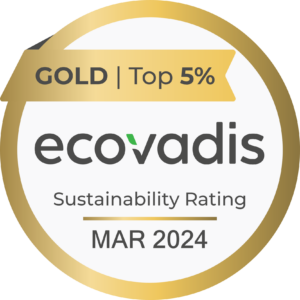What is sustainable procurement?
“Sustainable procurement is procuring goods and services in favour of the protection of the environment, of social progress and in support of economic development, namely by seeking resource efficiency, improving the quality of products and services and ultimately optimizing costs”[1]. Sustainable procurement is a theme that is increasing across the public and private sector as more and more organisations adopt a value chain approach to sustainability.
Here are some of the key elements of sustainable procurement:
- Environmental Considerations: This includes opting for environmentally friendly products, reducing waste, reducing carbon footprints, and promoting the use of renewable resources. Companies might look for products with certifications like Energy Star, FSC (Forest Stewardship Council), or that are made from recycled materials.
- Social Considerations: Sustainable procurement also means considering the social impact of purchases. This can involve ensuring fair labour practices, supporting small and local businesses, and prioritising suppliers that are committed to ethical standards.
- Economic Considerations: While keeping environmental and social factors in mind, sustainable procurement also focuses on economic efficiency—balancing cost with benefits to society and the environment. This approach includes looking at the lifecycle cost of products, not just the purchase price, which can lead to savings through efficiency and durability.
- Policy and Compliance: Many organisations establish procurement policies that mandate or encourage sustainable practices. These policies are often aligned with broader corporate sustainability goals or compliance requirements.
- Stakeholder Engagement: Engaging stakeholders—including suppliers, customers, and employees—in sustainable practices is crucial. This can involve training, collaborative initiatives, and sharing best practices.
How can my business introduce sustainable procurement?
Introducing sustainable procurement in a business can be a strategic process that involves several steps to ensure that it aligns with the company’s values, operations, and long-term goals. The following steps can be used as a template for a business to implement sustainable procurement practices:
- Define Objectives and Scope: Start by defining what sustainability means for your company. Set clear objectives that are aligned with your company’s sustainability and corporate social responsibility goals. Determine the scope of your procurement policy, deciding which products, services, and suppliers it will cover.
- Assess Current Practices: Conduct an assessment of your current procurement practices to identify areas where sustainability can be integrated. This includes reviewing your supply chain, existing supplier relationships, and the lifecycle impacts of the products and services you purchase.
- Develop a Sustainable Procurement Policy: Create a policy that outlines your commitment to sustainability. This policy should include guidelines for selecting suppliers, criteria for product and service selection, and the environmental and social standards you expect from your partners.
- Supplier Engagement and Selection:
- Engage Suppliers: Communicate your sustainability goals to your existing suppliers and involve them in developing more sustainable practices. Survey and talk to existing suppliers about what sustainability actions they are taking, if they have sustainability policies in place and if they can provide you with a more sustainable product or service offering.
- Selecting New Suppliers: Include sustainability criteria in tenders/selection processes to reward suppliers who can demonstrate their sustainability actions.
- Consider factors like suppliers’ management systems certifications (e.g., ISO 14001, ISO 50001, ISO 45001), worker practices, sustainability certifications (EcoVadis, B Corp) and the sustainability of their products or services.
- Training and Capacity Building: Train your procurement team and relevant stakeholders on sustainable procurement practices. This includes understanding sustainability certifications, assessing product lifecycle impacts, and negotiating contracts that include sustainability clauses.
- Implement Tools and Processes: Use tools such as sustainability scorecards for suppliers, lifecycle assessment software for products, and digital platforms that can help track and manage sustainable procurement practices.
- Monitor, Report, and Improve: Establish mechanisms to monitor compliance and measure the effectiveness of your sustainable procurement practices. Regularly report these outcomes to internal and external stakeholders to demonstrate progress and identify areas for improvement.
- Collaborate and Share Knowledge: Join networks or partnerships with other organisations focused on sustainable procurement. This can provide opportunities to share best practices, collaborate on common challenges, and stay updated on new sustainability trends and technologies. Consider reaching out to your Chamber of Commerce to engage with local businesses and discuss how they are managing their sustainable procurement practices.
- Review and Iterate: Sustainable procurement is an ongoing process. Regularly review your practices and policies to adapt to new sustainability developments, changes in your business operations, or shifts in regulatory requirements.
By systematically implementing these steps, a business can effectively transition to sustainable procurement, reducing its environmental impact while promoting social and economic benefits.
What Tools Can I use to Support Sustainable Procurement Processes?
EcoVadis is an internationally recognised provider of business sustainability ratings, focusing on assessing and enhancing the environmental, social, and ethical performance of companies. EcoVadis can support your sustainable procurement processes as follows:
- Sustainability Ratings: EcoVadis evaluates suppliers across various industries on a range of sustainability criteria, including environmental impact, labor practices, fair business practices, and sustainable procurement. They provide detailed scorecards that help you understand the strengths and weaknesses of potential and current suppliers in terms of sustainability.
- Benchmarking: The EcoVadis platform allows businesses to benchmark their suppliers and their own sustainability performance against industry standards and best practices. This can help identify areas for improvement and encourage suppliers to enhance their sustainability efforts.
- Risk Management: By assessing the sustainability practices of suppliers, EcoVadis helps businesses identify potential risks in their supply chains. This could include risks related to environmental regulations, social compliance, or ethical concerns, thereby aiding in proactive risk management and mitigation strategies.
- Performance Monitoring: EcoVadis provides tools and services for ongoing monitoring of suppliers’ sustainability performance. This helps companies ensure compliance with their sustainability criteria and policies over time and enables them to track improvements or identify any backsliding.
- Supplier Engagement and Development: With EcoVadis, companies can engage their suppliers in a dialogue about their sustainability performance. The platform’s feedback mechanism allows businesses to provide constructive feedback to suppliers based on their ratings, encouraging them to undertake necessary improvements.
- Reporting and Communication: EcoVadis facilitates communication about sustainability performance with stakeholders by providing credible and third-party-verified sustainability assessments. Companies can use these in their CSR (Corporate Social Responsibility) reporting, investor communications, and customer disclosures.
- Driving Improvement and Innovation: By setting clear expectations and providing visibility into sustainability practices, EcoVadis motivates suppliers to innovate and improve their practices. This can lead to more sustainable product offerings and enhanced competitive advantage for both buyers and suppliers.
- Global Scope and Recognition: EcoVadis is recognised globally, which makes it a valuable tool for companies with international supply chains. It supports multiple languages and adheres to international sustainability standards, helping align diverse supply chain practices with global sustainability goals.
By integrating EcoVadis into their procurement processes, companies can not only ensure they are choosing suppliers that align with their sustainability values but also drive overall improvement in global supply chain sustainability.
Antaris and EcoVadis
Antaris supports clients with the EcoVadis assessments process. We are an Approved Consulting and Training Partner with EcoVadis, which means we are formally equipped to help businesses complete sustainability assessments, review scores and improve Environment, Labour and Human Rights, Ethics, and Sustainable Procurement practices. Antaris was carefully selected based on our experience and expertise, and we are periodically required to complete rigorous training on EcoVadis’ methodology and assessment process through the EcoVadis Academy. Moreover, Antaris has been awarded the coveted Gold ranking by EcoVadis. Achieving a Gold ranking places Antaris in the top 5% of all companies evaluated by EcoVadis.
Source
[1] United Nations High Level Committee on Management Procurement Network – HLCM PN, 2009





